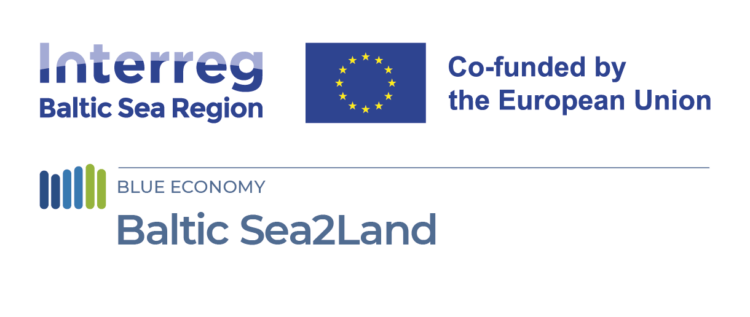Projects
CLIVAS – Climate change risk assessment and adaptation in Southwest Finland

The CLIVAS project assesses risks related to climate change in Southwest Finland using a framework and toolbox developed in the CLIMAAX project. Based on the results of the risk assessment and extensive stakeholder consultation, the project will make recommendations for adaptation measures in Southwest Finland. The adaptation measures will be included as an entirely new section in the regional climate roadmap.
The total budget of the project is 271 591 euros. The funding has been granted in the form of cascade funding by the project CLIMAte risk and vulnerability Assessment framework and toolbox (CLIMAAX) which has been financed from the Horizon Europe Funding programme. Southwest Finland is one of the pilot regions funded by the CLIMAAX project.
The project is coordinated by Valonia and is carried out in close cooperation with key stakeholders.
We Make Transition!
The project We Make Transition! aims to strengthen the resilience of the society especially by supporting the cooperation between the civil society and the public sector in the transition towards an ecologically and socially sustainable future. A working method called transition arena is being utilised in the project, with the help of which different needs are being identified concerning the transition in the Baltic Sea region and on a local level. The transition arena also offers a platform for supporting innovations and co-development as well as testing community initiatives.
The duration of the project with a budget of 3,2 million euros is three years (2023–2025) and it is funded through the Baltic Sea Region Interreg program. The partners in the project are: The Baltic Institute of Finland (main partner); The Council of Tampere Region; Helsinki-Uusimaa Regional Council; The Regional Council of Southwest Finland; Green Tiger, Estonia; Foundation for Science and Liberal Arts Domus Dorpatensis, Estonia; Social Innovation Centre, Latvia; Vidzeme Planning Region, Latvia; Baltic Institute of European and Regional Affairs (Biser), Poland; Gdynia municipality, Poland; Trondelag County Authority, Norway; and University of Bremen, Institute Labour and Economy, Germany.
The Regional Council of Southwest Finland carries out the local pilot projects of the transition arena in Kimitoön and Uusikaupunki, which are the associate members of the project along with Varsinais-Suomen Kylät Association.
Partnerships for Regional Innovation
Southwest Finland is excited to be part of the Partnerships for Regional Innovation (PRI) pilot 2022–2023 together with Region Västerbotten from Sweden, and the Baltic Sea Region S3 Directors’ Network. This is a new approach to place-based innovation policy which builds on positive experiences with smart specialisation strategies.
New Location Innovation Hub
The new Location Innovation Hub (LIH) supports companies and society in utilisation of geographic information especially in the areas of built environment, bioeconomy, traffic, and wellbeing. The hub consists of National Land Survey of Finland along with 27 partners and 20 other cooperation partners. Its mission is to enhance the use of geographic information, that is, data connected to geographic locations, in different services, new business and technology, and in this way create new benefits for the society.
Lounaistieto, the joint information service for Southwest Finland and Satakunta, participates in the Location Innovation Hub as a local partner and coordinates the activities in the work package of communication and education. This includes the coordination of local events and promoting the network cooperation. From Southwest Finland, also the University of Turku is participating.
Scale-UP
The main objective of the SCALE-UP project is to develop data-based and user-oriented strategies to speed up intelligent, clean and inclusive mobility in regional traffic hubs. Accordingly, the core of the work done by the Regional Council of Southwest Finland and Valonia is to creat an organisational structure model that enables the development of sustainable mobility in the whole of Southwest Finland. In particular, the purpose is to promote the development of regional train service in the region.
The project is led by the city of Antwerp, and the two other main partners are the cities of Madrid and Turku. The part of the project that focuses on Turku will be carried out by the Regional Council of Southwest Finland, Turku University of Applied Sciences and Vinka Oy.
Maritime Spatial Planning
In maritime spatial planning international collaboration is done in multiple EU projects. The projects support the exchange of information between experts and the definition of good practices. The identified good practices and procedures will be utilized in the context of the Finnish maritime spatial planning process.
eMSP NBSR
The eMSP NBSR project creates connections between authorities and experts working with Maritime Spatial Planning in the North and Baltic Sea Regions. The goal is to recognise and unify good MSP practices all the while developing a Community of Practice model through which key themes, such as Sustainable Blue Economy and Ecosystem-based Approach, are discussed together in a co-learning environment. The European Green Deal and challenges brought on by climate change are taken into consideration in all aspects of the project.
BalticSea2Land
The complexity of land-sea interactions and overlapping jurisdictions of various public authorities calls for multi-level governance to balance different interests and drivers in coastal areas in order to achieve European Green Deal goals. The Baltic Sea2Land project will produce a tool for decisionmakers and stakeholders, which will facilitate decision-making for a sustainable coastal development.

MSP-GREEN
The focus of the MSP-GREEN project is on how maritime spatial plans of the partner countries support the objectives of the European Green Deal. As the first maritime spatial planning project to cover all European sea-basins, it identifies valuable practices, designs and implements new actions and provides recommendations to aid MSP in all member states in achieving these objectives in the future.